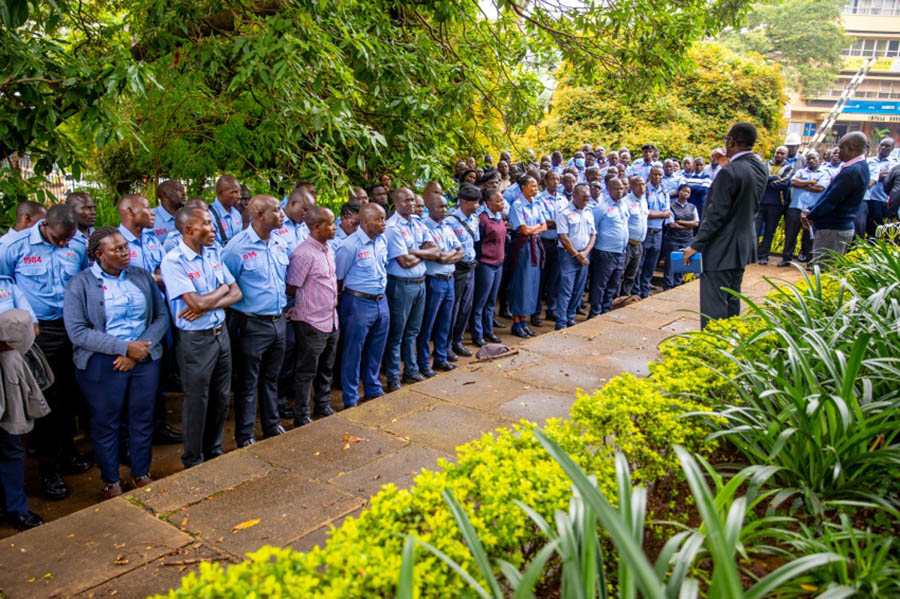The Court of Appeal has rejected an appeal by 34 former law enforcement assistants who argued they were unfairly fired by the Kampala Capital City Authority (KCCA) and deserved pension, gratuity, and other benefits.
The three-judge panel upheld an earlier decision by the Industrial Court, saying the workers were bound by their short-term contracts and had no right to permanent status.
The case, was filed in 2018 by Ssenuni Mohamed, Bakiti Faisal, and Mawanda Matia, who represented themselves and 31 other colleagues. The workers were originally hired by the Kampala City Council (KCC) – KCCA’s predecessor, as assistants to enforce laws and maintain order in the city.
According to the court documents, the workers signed “vocational employment offers,” which were temporary contracts lasting three to six months. These contracts explicitly stated that no terminal benefits, like pension or gratuity, would be paid at the end.
The workers claimed they worked continuously from 1999 until February 2012, when their services ended without notice. They argued that their long service made them permanent employees under the Employment Act, entitling them to benefits and protection from unlawful dismissal.
In their appeal, the workers’ lawyers said the contracts were a “legal facade” designed to deny them rights. They pointed to sections of the Employment Act that define “continuous service” as uninterrupted work, even if contracts expire and are not formally renewed. The workers also claimed discrimination, noting that other KCCA staff doing similar jobs were made permanent public officers.
KCCA denied the claims, saying the workers were hired for specific temporary tasks and that their contracts ended naturally without needing notice or benefits. Richard Lule, KCCA’s Director of Administration and Human Resource, testified that the workers were casual employees, and no continuity existed after each contract expired.
Justice Byaruhanga Jesse Rugyema, who wrote the lead judgment, agreed with KCCA. He explained that the workers freely signed the contracts, which clearly excluded benefits.
“Parties are free to choose their contracting partners and agree on terms,” the judge said, citing the principle of “freedom of contract.” He noted there was no evidence of work before 2005 or after the contracts expired in 2008, and the workers failed to prove continuous employment.
The court also rejected the pension claim under the Pensions Act, saying the workers did not hold “pensionable offices” for at least 10 years in a continuous capacity. Justices Eva Luswata and Stella Alibateese concurred with the decision.
The appeal was dismissed, but the court ordered no costs against the workers, recognizing their disadvantaged position as a group of former employees.







